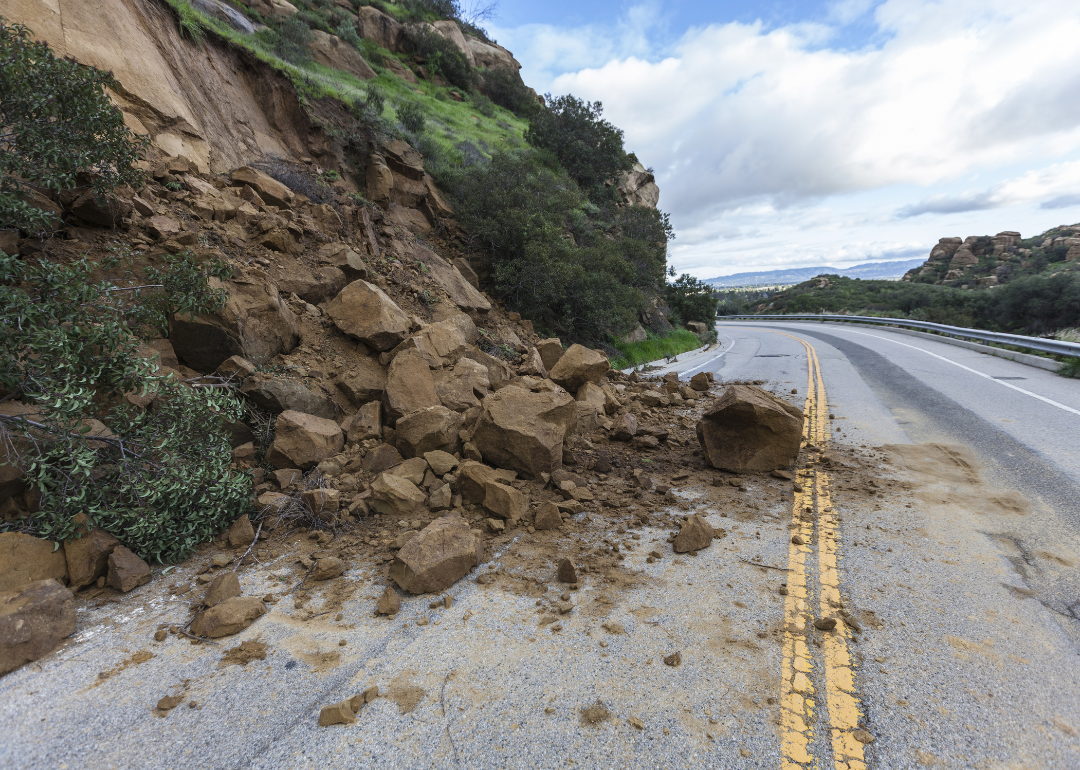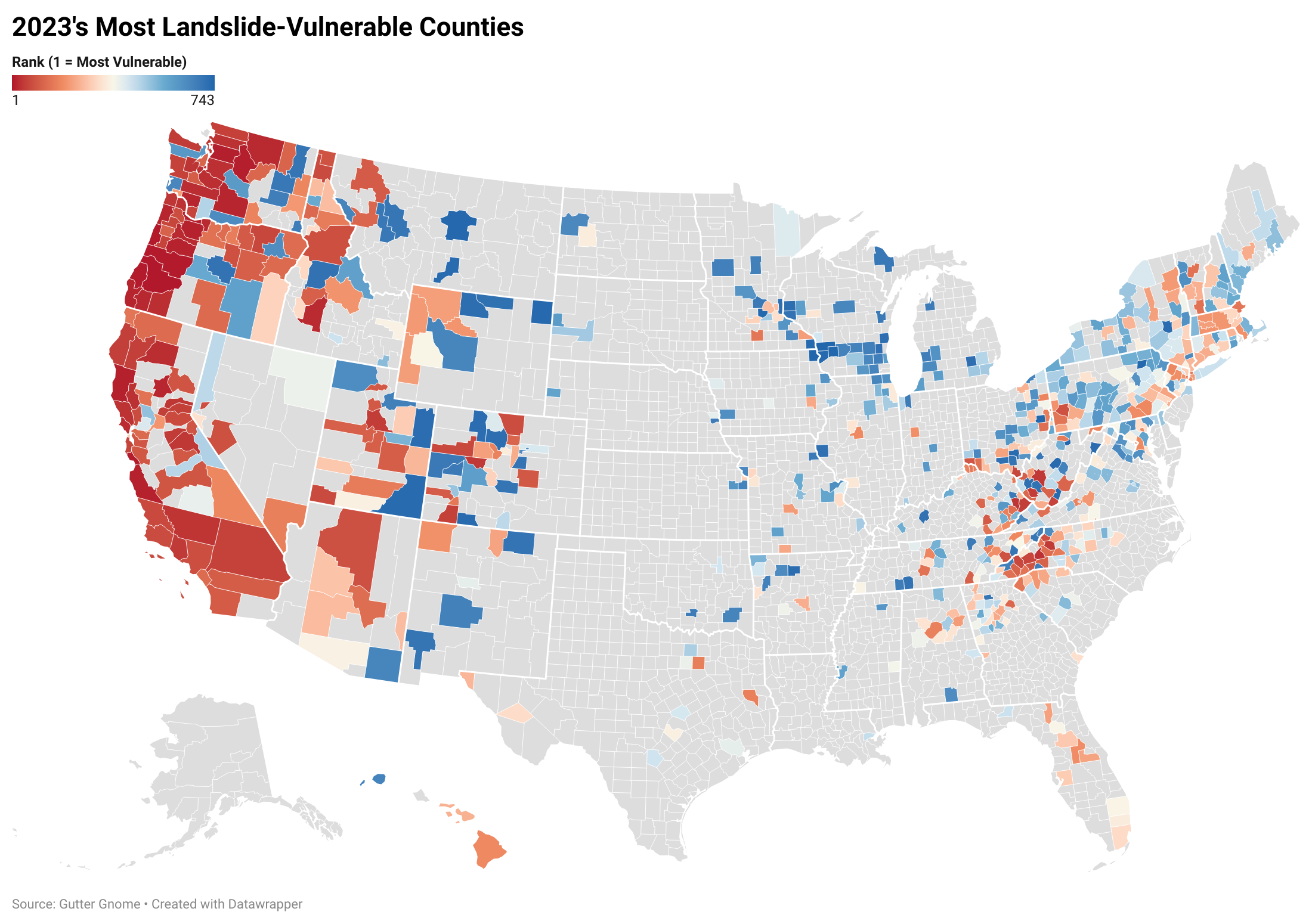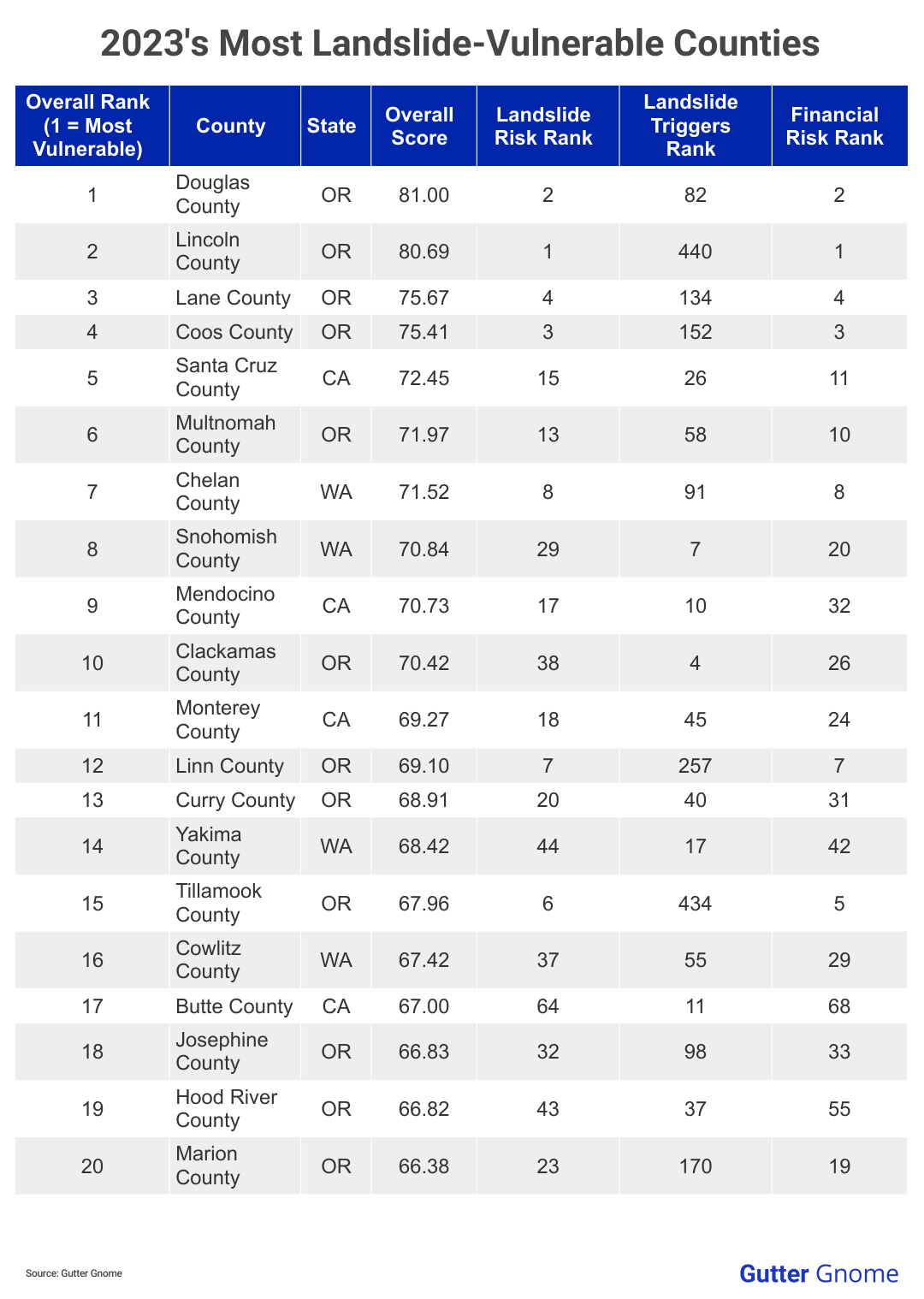
Landslide season is upon us: Here are the most vulnerable counties in the US
Landslide season is upon us: Here are the most vulnerable counties in the US
Which U.S. counties have the highest incidence and financial risk from landslides?
To mark the start of landslide season — November to March — Gutter Gnome ranked 2023's most landslide-vulnerable counties.
This analysis compared over 740 counties with moderate to very high landslide risk based on three categories. Further criteria include landslide triggers — like earthquake risk, historical precipitation levels, and deforestation — and expected annual financial loss from landslides, among 10 total metrics.
See if your region is at risk in the ranking below. To learn how counties were ranked, see the methodology below.

Many of the most vulnerable counties are along the West Coast, but many landlocked areas also bear certain risk
The Upshot
Oregon, California, and Washington face the highest risk of landslides, with many counties expecting to lose millions of dollars annually to landslide damage. Some counties — like Clackamas County, Oregon (No. 10), Snohomish County, Washington (No. 8), and Mendocino County, California (No. 9) — also finished in the top 10 of Landslide Triggers, due to more frequent earthquakes and higher tree cover loss over the past 20 years.
The steep Appalachian Mountains and regional soil types make parts of Kentucky and West Virginia more susceptible to landslides, too. High landslide risk and annual precipitation sent Floyd County, Kentucky (No. 36), and two West Virginia counties — Kanawha County (No. 42) and Logan County (No. 48) — into the top 50 of our ranking. Experts have found that regions impacted by coal mining and mountaintop removal may also be more vulnerable to landslides.
Rainy regions along North Carolina's Appalachian range, such as McDowell County (No. 30) and Caldwell County (No. 45), also experience high landslide risk and anticipated financial loss.
Now let's break down the top 20 most vulnerable counties and the metrics behind their ranking.

These are the top 20 most landslide-vulnerable counties in America
Note: Several cities are located within counties bearing the same name but are not part of the county and operate independently. For example, Roanoke City, Virginia, is not considered part of Roanoke County, Virginia. Those cities are included among counties by the U.S. Census Bureau for data purposes and therefore were also included in our sample.
Methodology
First, Gutter Gnome determined the factors (metrics) that are most relevant to rank the most landslide-vulnerable counties and then assigned a weight to each factor based on its importance and grouped those factors into three categories: Landslide Risk, Landslide Triggers, and Financial Risk. The categories, factors, and their weights are listed in detail here.
For each of the 743 U.S. counties with relatively moderate to very high landslide risk according to the Federal Emergency Management Agency (FEMA), we then gathered data on each factor from the sources listed below the table.
Finally, we calculated scores (out of 100 points) for each county to determine its rank in each factor, each category, and overall. A county's Overall Score is the average of its scores across all factors and categories. The highest Overall Score ranked "Most Vulnerable" (No. 1) and the lowest "Least Vulnerable" (No. 743).
Gut(ter) check: Be prepared
Each year, landslides kill dozens of people, and millions of dollars are lost in the U.S. to the resulting damage.
Know the warning signs to look out for and reduce the impact of landslides on your property by following these tips:
- Research the history of landslides in your area as they tend to recur in the same places.
- Sign up for local emergency alerts, and create an evacuation plan for your household.
- Avoid building or clearing land along mountain edges or steep slopes.
- Hire an expert to survey your property and provide building and rain dispersal recommendations.
- Update your home's insurance — many policies do not cover damages caused by landslides or mudslides.
- Plant trees and ground cover for increased erosion control, especially along steep or hilly areas.
- Build retaining walls, channels, or deflection walls to enhance rainwater dispersal — but keep in mind that if you direct the flow to your neighbor's property, you may be liable for any damages that occur.
- Make sure your roof, gutters, and downspouts are draining properly and away from your home.
- Regrade your property with a slight downward slope going away from the foundation of your home.
- Keep your gutters clean and damage-free.
This story was produced by Gutter Gnome and reviewed and distributed by Stacker Media.



